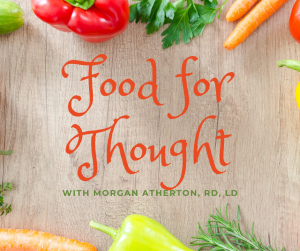Celiac Disease
According to the Celiac Disease Foundation, an estimated 1 in 100 people worldwide are currently impacted by celiac disease. Celiac disease is an autoimmune disorder, and those who have it experience an immune reaction when they eat any product containing gluten. Gluten is a protein that is found in wheat, barley, rye, and their byproducts. This immune reaction results in damage to the lining of the small intestine, which is where the majority of nutrient absorption takes place. The damage to the lining of the intestine can result in malabsorption of various nutrients, and even malnutrition over time. The symptoms of celiac disease can vary slightly from person to person, but most include those of the gastrointestinal system. Currently, the only treatment for celiac is a diet that is 100% gluten free, which can lead to drastically reduced symptoms.
Those with celiac are more likely to develop deficiencies of vitamins B12, D, and K due to the decreased absorption in the intestine. This could also lead to iron deficiency anemia, especially if someone has been dealing with undiagnosed celiac for a long period of time. For this reason, individuals may benefit from taking vitamin and mineral supplements to prevent any nutritional deficiencies or address any of those that may already exist. Always consult with a healthcare provider before supplementing to ensure that you are getting what you actually need and are not wasting money on supplements that do not help your specific situation.
The terms “gluten sensitivity” and “gluten intolerance” can be commonly used to describe individuals with nonspecific symptoms, such as nausea, abdominal cramps, or diarrhea after eating certain foods. In these instances, the individual does not experience the immune response that is characteristic of celiac disease. Those with any of these symptoms should get a full workup before going completely gluten free to ensure that there is not an underlying medical condition that may need a different treatment.
Gluten free diets eliminate all products containing wheat, barley, rye, and oats (unless they are labeled gluten free). It can be overwhelming searching for gluten free food items, however, it is slowly getting easier with more and more foods being labeled gluten free right on the front of the product. It is extremely important to pay attention to food labels and know potential sources of gluten to make sure none is ingested unintentionally.
Foods to Eat:
Vegetables– all vegetables that are fresh, canned, or frozen (not in a sauce, gravy, or seasoned)
Fruits- all fresh or frozen
Proteins- eggs, poultry, fish, beef, tofu, yogurt, cheese, cottage cheese, beans, lentils (all without additional sauces, gravies, pre-packaged marinades)
Fats- nuts, seeds, nut butters, oils
Naturally gluten free grains and starches– amaranth, beans, cassava, chai, corn, flax, gluten-free oats, millet, nut flours, potato, quinoa, rice, sorghum, tapioca
Foods to Avoid
Grains- bread, tortillas, cereals, breaded foods, cakes, cookies, pastries, crackers, pretzels, pancakes, waffles, croutons, pasta (unless labeled gluten free)
Barley and Rye– barley, barley malt extract, beer, rye bread, crackers
Additional gluten containing ingredients- bran bulger, couscous, durum, enriched flour, farro, graham, graham flour, malted milk, malt vinegar, maltose oats, orzo, spelt, wheat berries, brewer’s yeast.
Processed foods that may contain gluten- bouillon cubes, brown rice syrup, candy, cold cuts, hot dogs, salami, sausage, French fries, gravy, imitation fish, sauces, seasoned chips, soy sauce, vegetables in a sauce, cream based soups
It is completely normal to feel overwhelmed when it comes to making food choices for someone with celiac disease. This is why it is important to communicate regularly with your healthcare providers and work with a dietitian who can help with meal planning and label reading to prevent any further symptoms. While diet changes are necessary, there are still many ways to include the foods that you enjoy without causing any additional complications.
https://celiac.org/

